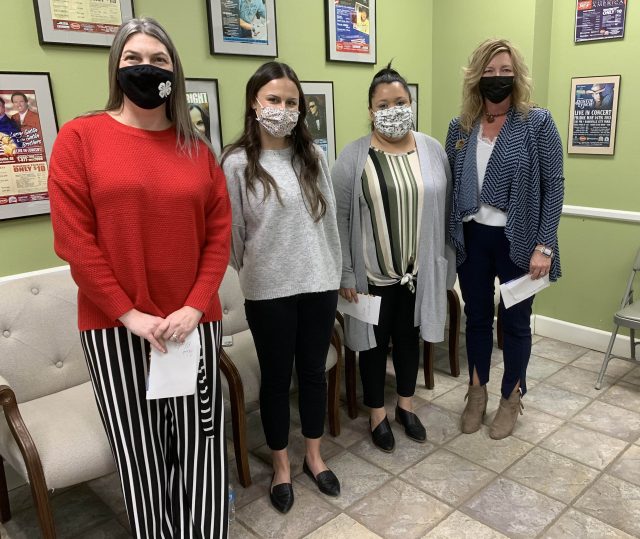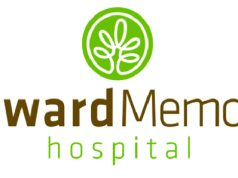
By John R. Schirmer
News-Leader staff
Career coaches don’t prowl the sidelines during games. They don’t have whistles around their necks. They don’t have fans yelling “suggestions” about which play to run next.
They do have game plans. They do try to motivate their “players.” They find ways to help their charges succeed.
Career coaches work with high school and junior high students on everything from scheduling to internships to scholarships. They use some of the same techniques as athletic coaches on a daily basis.
Julie Rhodes, director of high school programs at UA-Cossatot, discussed career coaches at the Feb. 3 meeting of the Nashville Rotary Club. She also brought three of the coaches with her – Amy Westfall from Nashville High School, Kelsey Smith from Ashdown and Gabriela Balderas from De Queen.
Cossatot’s career coach program began in 2013, Rhodes said, when then-chancellor Dr. Maria Markum talked to Rhodes about it. Since then, the program has expanded to schools in Howard, Sevier, Little River and Pike Counties.
When Rhodes began pitching the program to school districts, she often heard, “That’s the counselor’s job.”
However, counselors in today’s schools “are over run,” Rhodes said. In the past, they worked on scheduling, ACT registration, college and career planning, and a host of other ways to help their students.
Now, however, counselors have a number of additional responsibilities, including students’ mental health. Career coaches help the counselors and students, Rhodes said.
“They’re not just in Nashville,” Rhodes said. “Schools have them across the state.”
For Cossatot’s participants, the college pays half of their salary, and the school district pays the other half in the form of a grant to the college.
The first two coaches were at Horatio and De Queen in 2014, Rhodes said. From there, the program expanded. Nashville joined in 2016 when Westfall came on board.
“The largest schools in our area have them,” Rhodes said. “Money is a problem at the smaller ones.”
Rhodes asked the Rotarians to support the program. “Tell kids to to to their career coaches. Tell them to take concurrent classes. Tell them to be productive citizens.”
Westfall said she starts with students in eighth and ninth grade and goes through high school seniors. “I go between the buildings and start preparing them. I ask what they’re gong to be and encourage them to take the classes they need.”
High school credits and GPA starts with ninth graders, Westfall said. She explains to them how their grades will affect their GPA as seniors. She also “tries to help find a place for them to get involved. That’s important when they ask for recommendations. Community service is important for seniors scholarships.”
Westfall said that by starting early, she is “preparing students to move on to the next step” as they go to high school.
With sophomores, Westfall encourages them to take classes that prepare them for the ACT, college and careers. “We dig into college websites and requirements.”
Juniors are reminded about scholarships. Westfall also points out that many colleges have students admitted and scholarships in place by November 15 of their senior year in high school, and she tells juniors to prepare.
Westfall said high schools “used to have college fairs for seniors only. I asked if we could take juniors because they need to be decided by November of their senior year,” and Principal Tate Gordon agreed.
Westfall said she urges students to become “aware of what their parents do for a living” because of family income’s effects on financial aid.
As a former high school counselor, Westfall said she knows the additional responsibilities the counselors have taken on. “They get bogged down in paperwork, mental health issues, scheduling. I got burned out and overworked,” she said. With so many other duties for counselors, “There’s not time to help students plan. What I do now is the fun side of counseling.”
Westfall said that she and NHS counselor Crystal Evans work closely with each other. Westfall focuses on ACT, financial aid, technical education and other areas. Students go to Evans “for scheduling, mental health, guidance in life skills.”
Rhodes and Westfall said career coaches track their students from eighth grade through high school and at least one year afterward as the move on to college and the workplace. “We have to keep data on all students and document every visit with them,” Rhodes said.







